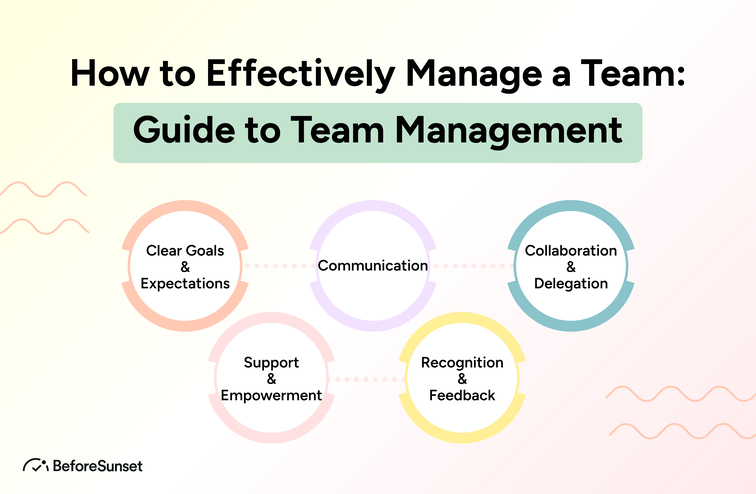OpenAI And The FTC: Examining The Investigation Into ChatGPT

Table of Contents
The FTC's Concerns Regarding ChatGPT's Data Handling and Privacy
The FTC's investigation into OpenAI centers largely on concerns about ChatGPT's data handling practices and potential violations of privacy laws. The core issue revolves around how the platform collects, uses, and protects user data.
Data Collection Practices
ChatGPT's data collection practices have raised significant red flags. The sheer volume of data collected—including user inputs (prompts), generated responses, and potentially even browsing history depending on integration—is staggering.
- Extensive Data Collection: ChatGPT gathers far more than just the prompts and responses; it collects metadata about the interaction.
- Lack of Transparency: The extent to which this data is used, stored, and shared isn't always transparent to users. Clear and concise privacy policies are crucial.
- Potential for Data Breaches: The vast dataset makes it a potential target for cyberattacks, raising concerns about data security and the potential for sensitive information breaches.
- Insufficient User Consent: Questions remain about whether users fully understand and consent to the extent of data collection and its various uses. The "informed consent" aspect is paramount here. These concerns regarding ChatGPT data privacy are central to the FTC's investigation.
Misinformation and Bias in ChatGPT's Output
Another major area of concern for the FTC is the potential for ChatGPT to spread misinformation and perpetuate existing societal biases. The inherent biases present in the training data can lead to skewed or inaccurate outputs.
- Biased Outputs: ChatGPT's responses have been shown to reflect biases based on gender, race, religion, and other sensitive attributes.
- Spread of Misinformation: The model's ability to generate convincing but false information raises serious concerns about its potential for misuse. The ability of ChatGPT to generate persuasive falsehoods is a significant issue.
- Harmful Consequences: The dissemination of misinformation and biased content can have serious real-world consequences, impacting individuals and society as a whole.
- Mitigating Bias in LLMs: The challenge of effectively mitigating bias in LLMs is a complex technical and ethical problem that requires ongoing research and development. The FTC's concern about ChatGPT bias highlights the importance of developing robust mitigation strategies.
OpenAI's Response to the FTC Investigation
OpenAI has responded to the FTC's investigation with a combination of public statements and internal measures aimed at addressing the concerns raised.
OpenAI's Public Statements
OpenAI has publicly acknowledged the concerns and committed to improving its data handling and bias mitigation strategies. They have emphasized their ongoing efforts to enhance user privacy and safety. (Specific quotes from OpenAI's official statements should be included here if available).
- Commitment to User Privacy: OpenAI has reiterated its commitment to improving its data security measures and enhancing transparency.
- Focus on Bias Mitigation: They've highlighted investments in research and development to mitigate bias in their models.
- AI Safety Initiatives: OpenAI emphasizes its dedication to AI safety and responsible AI development. This includes ongoing efforts to address the ethical challenges of AI.
Internal Measures Taken by OpenAI
In response to the FTC's concerns, OpenAI has reportedly implemented and plans to implement several internal changes.
- Enhanced Data Security Protocols: Improvements in data encryption, access control, and overall security infrastructure are likely in progress.
- Improved Bias Mitigation Techniques: OpenAI is likely refining its training data and developing new algorithms to minimize bias in model outputs.
- Increased User Controls: Providing users with more granular control over their data and interaction with the model might be in development.
- Transparency Initiatives: OpenAI may be working towards greater transparency in its data usage practices and model development processes. These OpenAI data security improvements are crucial for regaining user trust.
Legal and Ethical Implications of the Investigation
The FTC investigation into OpenAI and ChatGPT has significant legal and ethical implications, setting a precedent for the regulation of AI companies and influencing the future of AI development.
Precedents for FTC Action Against AI Companies
This investigation isn't the first time the FTC has scrutinized the practices of companies utilizing AI. Past actions against companies for similar issues, such as deceptive marketing practices involving AI, may provide insights into potential outcomes in this case.
- Past FTC Cases: Reviewing past FTC cases involving AI will help predict the potential legal penalties.
- Potential Fines and Restrictions: Potential outcomes range from substantial fines to operational restrictions.
- Impact on Future AI Development: The outcome of this case could profoundly impact how AI is developed and deployed in the future. The legal implications of ChatGPT are far-reaching.
The Broader Impact on the AI Industry
The OpenAI and the FTC investigation into ChatGPT has far-reaching implications for the entire AI industry.
- Investor Confidence: The investigation could impact investor confidence in the AI sector, particularly in companies developing and deploying LLMs.
- Increased Scrutiny: Expect increased scrutiny from regulators globally, leading to a greater focus on responsible AI development.
- Need for Ethical AI Frameworks: The investigation underscores the urgent need for robust ethical frameworks and regulations guiding the development and deployment of AI. The impact of the FTC investigation on AI is likely to accelerate the development of industry-wide best practices.
Conclusion
The FTC's investigation into OpenAI and ChatGPT marks a pivotal moment in the evolution of artificial intelligence. The concerns surrounding data privacy, bias, and misinformation are legitimate and highlight the urgent need for responsible AI development. OpenAI's response to the investigation will significantly impact the future trajectory of the company and influence the regulatory landscape of the AI industry. The FTC's actions will likely shape the way AI companies operate and how LLMs are developed and deployed going forward. Follow the developments in the OpenAI and the FTC investigation into ChatGPT to stay informed about this crucial case shaping the future of AI. For more information, visit the official websites of the FTC and OpenAI, as well as reputable news sources covering the investigation.

Featured Posts
-
 My Sharjah Rental Experience More Space Less Cost Compared To Dubai
May 23, 2025
My Sharjah Rental Experience More Space Less Cost Compared To Dubai
May 23, 2025 -
 Posthaste Trouble Brewing In The Global Bond Market
May 23, 2025
Posthaste Trouble Brewing In The Global Bond Market
May 23, 2025 -
 Kieran Culkin To Play Caesar Flickerman In The Hunger Games Prequel
May 23, 2025
Kieran Culkin To Play Caesar Flickerman In The Hunger Games Prequel
May 23, 2025 -
 Instituto Novedades En La Lista De Citados Y Posible Alineacion Vs Lanus
May 23, 2025
Instituto Novedades En La Lista De Citados Y Posible Alineacion Vs Lanus
May 23, 2025 -
 Effective Briefs How To Write Use And Manage Them Successfully
May 23, 2025
Effective Briefs How To Write Use And Manage Them Successfully
May 23, 2025
Latest Posts
-
 Tulsa King Season 3 Kevin Pollaks Role And Impact On Sylvester Stallone
May 23, 2025
Tulsa King Season 3 Kevin Pollaks Role And Impact On Sylvester Stallone
May 23, 2025 -
 Wwe Wrestle Mania 41 Golden Belt And Ticket Sales This Memorial Day Weekend
May 23, 2025
Wwe Wrestle Mania 41 Golden Belt And Ticket Sales This Memorial Day Weekend
May 23, 2025 -
 Michigan Memorial Day 2025 Holiday Hours And Observances
May 23, 2025
Michigan Memorial Day 2025 Holiday Hours And Observances
May 23, 2025 -
 Chef Tiffany Derry Judges Master Chef A Dallas Culinary Icon Returns
May 23, 2025
Chef Tiffany Derry Judges Master Chef A Dallas Culinary Icon Returns
May 23, 2025 -
 This Memorial Day Enjoy Low Gas Prices
May 23, 2025
This Memorial Day Enjoy Low Gas Prices
May 23, 2025
